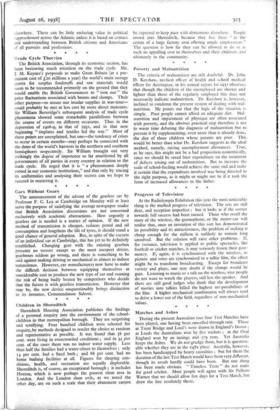Poverty and Malnutrition The criteria of malnutrition are still doubtful.
Dr. Joho D. Kershaw, medical officer of health and school medical officer for Accrington, in his annual report for 1937 observes that though the children of the unemployed are shorter and lighter than those of the regularly employed this does not necessarily indicate malnutrition. Dr. Kershaw is, however, inclined to condemn the present system of dealing with mal- nutrition. He points out that the logic of the situation is simple. Poor people cannot afford an adequate diet. Mal- nutrition and impairment of physique are often associated with poverty, and the obvious practical step therefore is not to waste time debating the diagnosis of malnutrition but to prevent it by supplementing, even more than is already done, the diet of those children whose parents are poor. This would be better than what Dr. Kershaw suggests as the ideal method, namely, raising unemployment allowances. True, as he says, this might not be a bad proposition economically, since we should be saved later expenditure on the treatment of defects arising out of malnutrition. But to increase the scale of school-feeding would achieve the same end and make it certain that the expenditure involved was being directed to the right purpose, as it might or might not be if it took the form of increased allowances to the father.
* * *


































 Previous page
Previous page